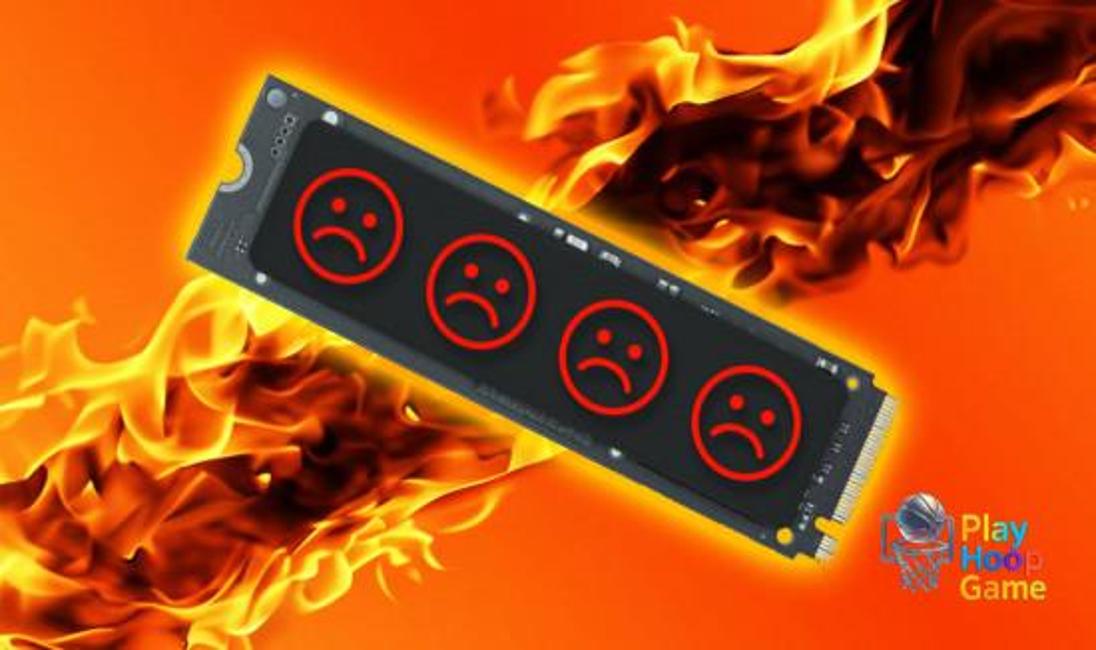Okay, so there's been this whole panic thing going on, right? The kind of panic where you start eyeing your NVMe SSD like it's about to explode after installing the latest Windows 11 update. I get it. Nobody wants their games turning into digital paperweights because of a buggy OS. The rumors were swirling that the recent Windows 11 update was the grim reaper for SSDs. Supposedly, it was writing data like a caffeinated squirrel on a rampage, wearing out your drive way faster than it should. Sounds scary, doesn't it?
But here's the thing – and this is a big "but" – Microsoft themselves has stepped in and said, "Hold up a sec! It's not us!" And when Microsoft makes a statement like that, well, you kinda have to listen. Now, I'm not saying we should blindly trust everything a corporation says, but they did actually investigate. And what they found was... well, not what everyone expected.
What Microsoft Actually Said About SSD Failures
The official line is that there's no evidence linking the recent Windows 11 update to increased SSD failure rates. Zip. Zilch. Nada. According to them, it's just not happening. They've looked at the telemetry data (basically, all the diagnostic info your computer sends back to Microsoft), and they haven't seen any spike in SSD errors or failures after people installed the update. That's pretty definitive, right?
Now, before you breathe a sigh of relief and go back to fragging noobs, there's something else to consider. Even if the Windows 11 update isn't directly causing SSD failures, that doesn't mean your drive is immortal. SSDs, like any other piece of hardware, eventually wear out. It's just a fact of life. They have a limited number of write cycles, and every time you install a game, download a movie, or even just save a document, you're using up those cycles.
But wait, there's something even more interesting here. SSD health can be influenced by so many things. Think about the games you are playing. Some of them could be demanding a lot more data from the hard drive causing it to crash.
Other Culprits Behind Failing SSDs
Okay, let's say, hypothetically, that Microsoft is telling the truth (gasp!). What could be causing those dreaded SSD failures? Well, there are a few possibilities. Here's the thing: SSDs have gotten way more affordable, which is awesome. But sometimes, that lower price comes at a cost. Cheaper SSDs might use lower-quality components, which makes them more prone to failure in the long run. It's like buying the budget version of anything – you save money upfront, but you might pay for it later.
Then there's the issue of heat. SSDs, especially those NVMe drives that plug directly into your motherboard, can get hot, especially under heavy load. And heat is the enemy of all electronics. If your SSD is constantly running at high temperatures, it's going to degrade faster. Make sure your PC case has good airflow, and consider adding a heatsink to your SSD if it doesn't already have one. Seriously, it can make a huge difference.
Oh, and don't forget about power supplies. A faulty or underpowered PSU can cause all sorts of weird problems, including SSD failures. If your power supply isn't delivering clean, stable power, it can damage your SSD over time. It's worth investing in a good quality power supply from a reputable brand.
But – you might be wondering – why all the fuss about this particular Windows 11 update? Well, timing is everything, isn't it? If a bunch of people start experiencing SSD failures shortly after installing a new update, it's natural to assume that the update is to blame. Correlation doesn't equal causation, as the saying goes. It could just be a coincidence.
I keep coming back to this point because it's crucial: don't jump to conclusions. Before you start blaming Microsoft (or anyone else), take a step back and look at the bigger picture. Consider all the possible factors that could be contributing to the problem. And remember, sometimes things just fail. It's frustrating, but it happens.
Maintaining Your SSD for Longevity
So, what can you do to keep your SSD happy and healthy? Well, first off, monitor its health. There are plenty of free tools out there that can show you the SMART data for your drive, which includes things like temperature, number of write cycles, and overall health status. Keep an eye on these numbers, and if you see anything out of the ordinary, investigate further.
Also, don't fill your SSD to the brim. Leaving some free space (at least 10-20%) can improve performance and extend its lifespan. When an SSD is nearly full, it has to work harder to find space to write new data, which can lead to increased wear and tear.
And finally, keep your firmware updated. SSD manufacturers often release firmware updates that improve performance, fix bugs, and enhance reliability. Make sure you're running the latest firmware for your drive.
FAQ: SSDs and Windows 11 Updates
Could the recent Windows 11 update be indirectly affecting my SSD's lifespan?
That's a good question! While Microsoft says the update isn't directly causing SSD failures, it's possible that it's exacerbating existing issues. For example, if the update is causing your system to write more data to the drive (even if it's just temporary files), that could contribute to wear and tear. Similarly, if the update is causing your SSD to run hotter, that could also shorten its lifespan. It's all about cumulative effects, you know? But, again, there's no solid evidence to support this.
How can I tell if my SSD is about to fail?
Keep an eye out for warning signs. If your computer is frequently crashing, if you're seeing error messages related to your drive, or if files are becoming corrupted, those could be signs that your SSD is on its way out. Also, check the SMART data for your drive. If the health status is declining or if the number of write cycles is approaching the limit, it's time to start backing up your data and planning for a replacement.
Is there anything I can do to prevent SSD failure?
Absolutely! As mentioned before, monitor your SSD's health, keep it cool, don't fill it up completely, and keep the firmware updated. Also, avoid sudden power outages. A surge protector or UPS (uninterruptible power supply) can help protect your SSD from damage caused by power fluctuations. And, of course, back up your data regularly!
The recent Windows 11 update claims to improve storage performance. How does that impact SSD health?
That's an interesting point! Ideally, storage performance improvements should help SSD health by optimizing write operations and reducing unnecessary wear. However, poorly implemented optimizations could potentially have the opposite effect. It really depends on the specifics of the update and how it interacts with your particular SSD model. If you are still running into issues consider trying older versions of the operating system.
Ultimately, the whole "Windows 11 update killing SSDs" thing seems to be mostly a false alarm. But it's a good reminder to take care of your hardware and be aware of the factors that can affect its lifespan. Now, if you'll excuse me, I'm going to go check the temperature of my own NVMe drive. Just to be safe, you know?

























